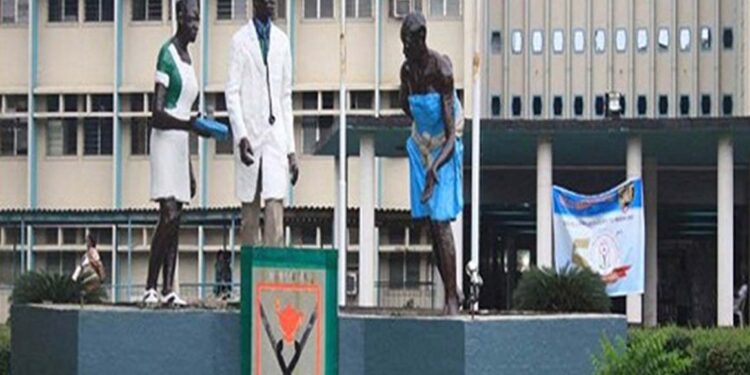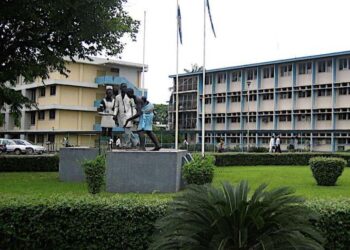The management of Lagos University Teaching Hospital (LUTH) has become the first organisation in Africa to meet the rigorous quality standards set by the British Society for Antimicrobial Chemotherapy (BSAC) Global Antimicrobial Stewardship Accreditation Scheme (GAMSAS).
BSAC GAMSAS is a worldwide accreditation scheme that establishes a high bar for the quality that antimicrobial stewardship (AMS) programs must exceed to be considered proficient in the safe and effective utilization of antibiotics.
AMS encompasses a range of activities that promote the safe and effective application of antibiotics, ensuring they are used without posing risks of harm or danger, thus playing a pivotal role in combating antimicrobial resistance (AMR).
Nairametrics learnt that the primary goal of antimicrobial stewardship is to optimize antimicrobial therapy. It also serves other essential purposes like reducing treatment costs, minimizing adverse effects, and lowering the risk of antimicrobial resistance development.
LUTH has made history as the first organization in Africa to attain BSAC GAMSAS accreditation.
This achievement underscores LUTH’s commitment to combating the global threat of AMR by supporting healthcare professionals responsible for the safe and responsible use of antibiotics.
What they said
Speaking on the recently achieved milestone by LUTH, the Chief Medical Director, LUTH, Prof Wasiu Adeyemo, said,
- “We are proud to be the first organisation in Africa to achieve BSAC GAMSAS accreditation.”
- “BSAC GAMSAS accreditation is a valuable tool for organisations that are committed to improving AMS. It provides a framework for organisations to develop and implement effective and sustainable AMS programmes, and it helps to ensure that these programs are meeting high standards of quality,” Adeyemo added.
Speaking further, he said,
- “LUTH is committed to providing high-quality care to its patients, adding that BSAC GAMSAS accreditation is a significant milestone in the institution’s efforts to combat AMR and support antimicrobial stewardship (AMS). We are proud to be recognised for our work in this area.”
Also, the Chairman, LUTH Antimicrobial Stewardship Committee and Clinical Microbiologist, College of Medicine, University of Lagos, Prof. Oyin Oduyebo, said, “
- “AMR is a growing global health threat. It occurs when bacteria, viruses, fungi, and parasites that cause harmful diseases, change over time and no longer respond to medicines that once could treat them effectively due to unnecessary use, inappropriate use and overuse of antibiotics because of a lack of awareness of the public.
- “AMR can lead to longer, more expensive hospital stays, increased risks of death, and the spread of infections to others.”
She went on to elaborate that Antimicrobial Stewardship (AMS) stands as a pivotal strategy in the prevention and management of Antimicrobial Resistance (AMR).
AMS encompasses a variety of interventions, including prioritizing and promoting the appropriate use of antibiotics, crafting and implementing guidelines for antibiotic prescriptions, educating healthcare professionals, patients, and the public on AMR and the responsible use of antibiotics, and closely monitoring antibiotic usage and resistance patterns.























